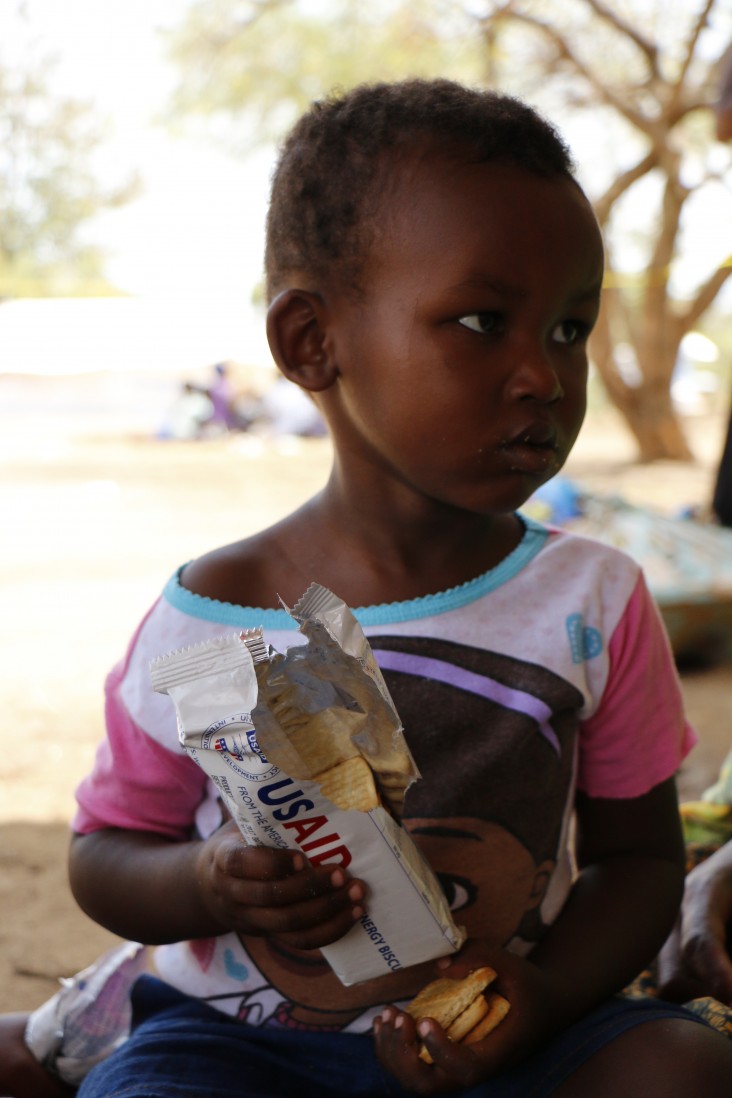Speeches Shim

May 2018 — Safe on the Ugandan edge of Lake Albert, Jeanette Kambenesa and her three children — Diana, Faith and Robert — ate the first food they had had in days. This respite came at the end of a harrowing week-long journey from their home in Ituri province in northeastern Democratic Republic of the Congo (DRC).
Kambenesa had little time to prepare for the voyage. Tipped off by neighbors that rebels had moved into the area around their town, the family rushed to get ready, leaving everything behind.
“We knew that they come in the middle of the night, and so we ran before nightfall, and we had to leave our cattle, so now we have nothing,” she explained. The family slept in the bush for five nights as they traveled, without shelter, protection or food.
Looking for safety, Kambenesa led her family to the shore of Lake Albert. “We heard that there were people over this side who could help us,” she said. After a long boat trip across the 20-mile-wide body of water, the family of four reached Uganda, disembarking at Ntoroko landing site at the southern end of the lake.
Upon arrival, they received high-energy biscuits, distributed by the U.N. World Food Program (WFP) and funded by USAID. These biscuits are calorie- and nutrient-rich, and temporarily replace meals for people who lack the resources to cook and need to quickly replenish their health after many days without nutritious food.
The experiences of Kambenesa and her family are not unique. During the first three months of 2018, an estimated 67,000 Congolese refugees arrived in Uganda. Many of these people fled intensifying violence in Ituri, where scores have died and entire villages have been razed in a complex and fluid conflict. Overall, Uganda hosts approximately 1.4 million refugees and asylum-seekers searching for shelter and protection from war and persecution in South Sudan, the DRC and other nearby nations.
Soon, Kambenesa and her children will move to Kyaka II refugee settlement in southwestern Uganda. Here, she will be able to look for work, receive land to set up her own homestead, seek medical care and enroll her children in school, like all refugees in the country. The family will also receive monthly rations from WFP, providing the food they need to meet their daily requirements. These tools help refugees adapt to their new locations and make fresh starts.
Rebuilding in a new country is not easy, however. As Kambenesa noted, “We are relying on the U.N. and support from others to help feed us until I can get money.”
To ensure that Kambenesa and vulnerable refugees like her get the assistance they need, USAID has contributed approximately $143 million to WFP in Uganda since late 2016. This support has enabled the distribution of maize, beans, cooking oil and other foods—purchased in U.S., Ugandan and regional markets—to more than 1 million refugees sheltering in the country.
Although Uganda provides a temporary refuge from the conflict across the border, it is not Kambenesa’s home: “We are going to stay until it is calm and then I hope to return,” she said.
In the meantime, however, USAID and its partners stand ready to provide life-saving support—which is sometimes as simple as a biscuit.
LINKS
Follow @USAIDFFP, @USAIDAfrica, on Facebook, on YouTube

Comment
Make a general inquiry or suggest an improvement.